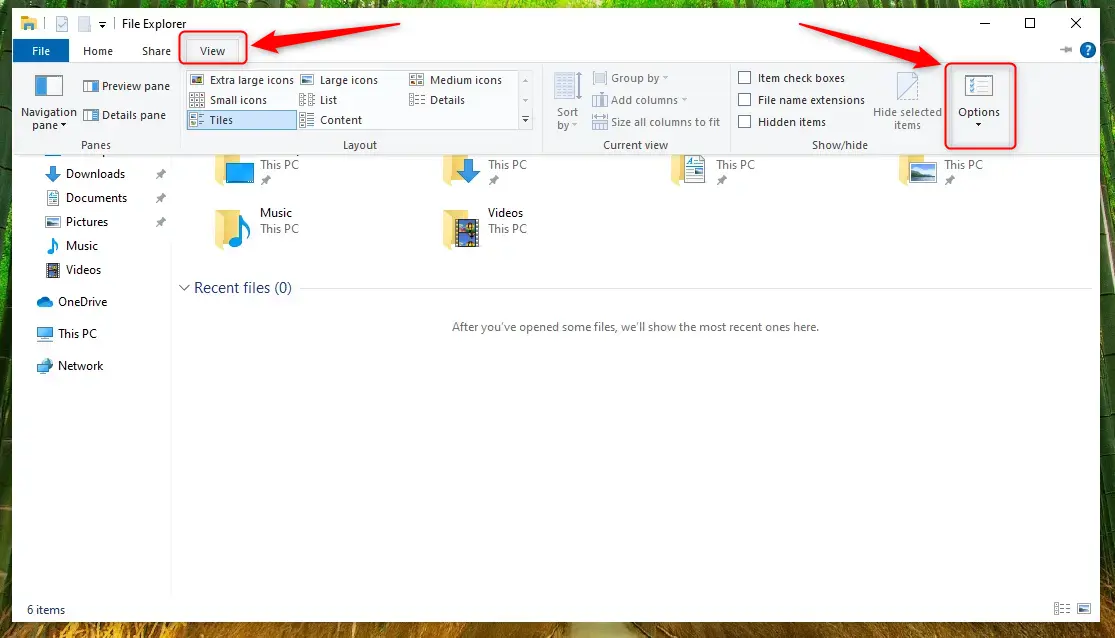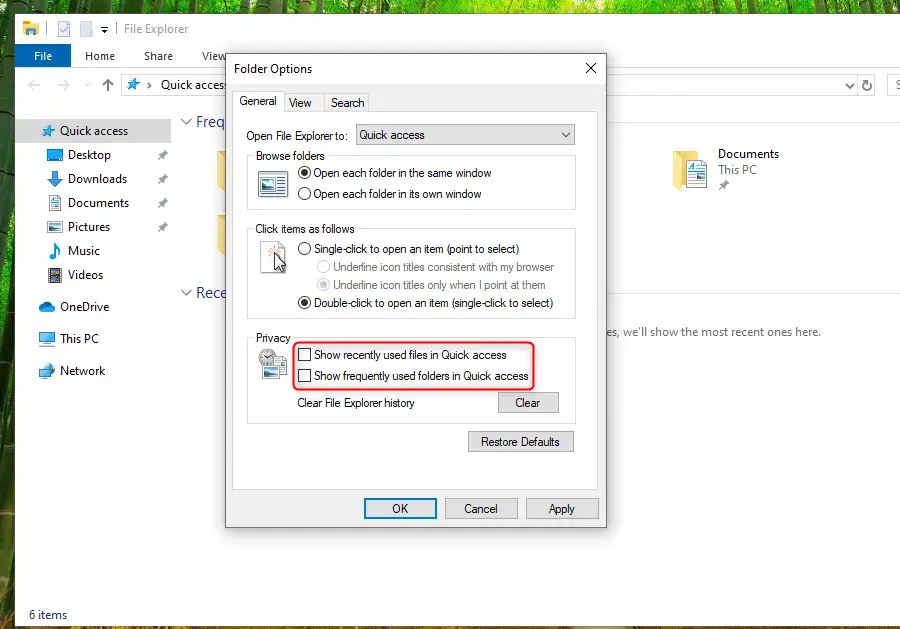This article explains how to turn off recent files in File Explorer on Windows 11.
For those who share their computer with others or use it publicly, disabling recent files is a key step in maintaining your privacy. It prevents others from seeing what you have been working on, ensuring your personal and professional information remains secure.
Disabling this feature can help reduce clutter in your Start Menu and File Explorer, making it easier to find the files you are looking for without distractions
Disable recent files in File Explorer
As mentioned, you can disable recent files and folders in File Explorer on Windows 10.
Here’s how to do it
First, open File Explorer.
When File Explorer opens, click the View tab, then Options, as shown in the image below.

On the ‘Folder Options‘ window, select the ‘General‘ tab. Under the ‘Privacy‘ section, uncheck box items:
- Show recently used files in Quick access
- Show frequently used folders in Quick access

While there, also click the Clear button to delete the File Explorer history of existing listings.
Click the OK button to save your changes.
That’s it!
Conclusion
Disabling recent files in File Explorer on Windows 11 can significantly enhance your privacy and streamline your user experience. Here are the key takeaways:
- Prevents unauthorized access to your recent documents and folders.
- Helps maintain your personal and professional information confidentiality.
- Reduces clutter in File Explorer and the Start Menu for easier navigation.
- Simple steps enable you to customize your File Explorer settings effectively.
By following the outlined procedures, you can ensure a more secure and organized workspace on your Windows 11 device.

Leave a Reply